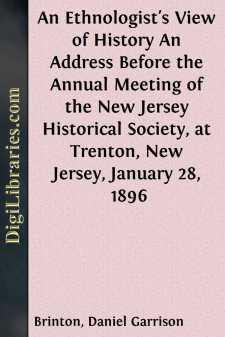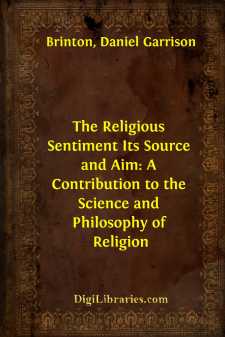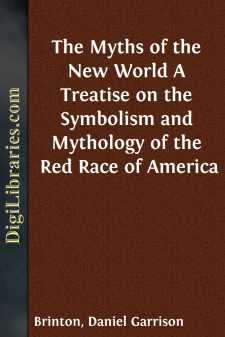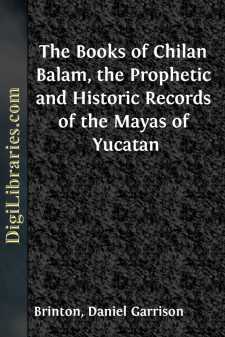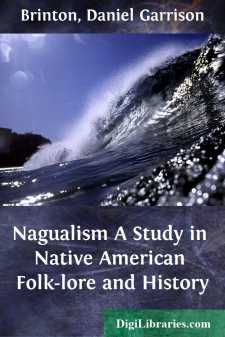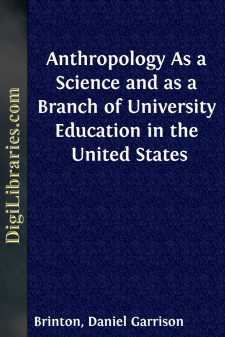Categories
- Antiques & Collectibles 13
- Architecture 36
- Art 48
- Bibles 22
- Biography & Autobiography 813
- Body, Mind & Spirit 138
- Business & Economics 28
- Children's Books 12
- Children's Fiction 9
- Computers 4
- Cooking 94
- Crafts & Hobbies 4
- Drama 346
- Education 46
- Family & Relationships 57
- Fiction 11821
- Games 19
- Gardening 17
- Health & Fitness 34
- History 1377
- House & Home 1
- Humor 147
- Juvenile Fiction 1873
- Juvenile Nonfiction 202
- Language Arts & Disciplines 88
- Law 16
- Literary Collections 686
- Literary Criticism 179
- Mathematics 13
- Medical 41
- Music 40
- Nature 179
- Non-Classifiable 1768
- Performing Arts 7
- Periodicals 1453
- Philosophy 64
- Photography 2
- Poetry 896
- Political Science 203
- Psychology 42
- Reference 154
- Religion 505
- Science 126
- Self-Help 81
- Social Science 81
- Sports & Recreation 34
- Study Aids 3
- Technology & Engineering 59
- Transportation 23
- Travel 463
- True Crime 29
An Ethnologist's View of History An Address Before the Annual Meeting of the New Jersey Historical Society, at Trenton, New Jersey, January 28, 1896
Description:
Excerpt
The intelligent thought of the world is ever advancing to a fuller appreciation of the worth of the past to the present and the future. Never before have associations, societies and journals devoted to historical studies been so numerous. All times and tribes are searched for memorials; the remote corners of modern, medieval and ancient periods are brought under scrutiny; and going beyond these again, the semi-historic eras of tradition and the nebulous gleams from pre-historic are diligently scanned, that their uncertain story may be prefaced to that registered in “the syllables of recorded time.”
In this manner a vast mass of material is accumulating with which the historian has to deal. What now is the real nature of the task he sets before himself? What is the mission with which he is entrusted?
To understand this task, to appreciate that mission, he must ask himself the broad questions: What is the aim of history? What are the purposes for which it should be studied and written?
He will find no lack of answers to these inquiries, all offered with equal confidence, but singularly discrepant among themselves. His embarrassment will be that of selection between widely divergent views, each ably supported by distinguished advocates.
As I am going to add still another, not exactly like any already on the list, it may well be asked of me to show why one or other of those already current is not as good or better than my own. This requires me to pass in brief review the theories of historic methods, or, as it is properly termed, of the Philosophy of History, which are most popular to-day.
They may be classified under three leading opinions, as follows:
1. History should be an accurate record of events, and nothing more; an exact and disinterested statement of what has taken place, concealing nothing and coloring nothing, reciting incidents in their natural connections, without bias, prejudice, or didactic application of any kind.
This is certainly a high ideal and an excellent model. For many, yes, for the majority of historical works, none better can be suggested. I place it first and name it as worthiest of all current theories of historical composition. But, I would submit to you, is a literary production answering to this precept, really History? Is it anything more than a well-prepared annal or chronicle? Is it, in fact anything else than a compilation containing the materials of which real history should be composed?
I consider that the mission of the historian, taken in its completest sense, is something much more, much higher, than the collection and narration of events, no matter how well this is done. The historian should be like the man of science, and group his facts under inductive systems so as to reach the general laws which connect and explain them. He should, still further, be like the artist, and endeavor so to exhibit these connections under literary forms that they present to the reader the impression of a symmetrical and organic unity, in which each part or event bears definite relations to all others. Collection and collation are not enough. The historian must “work up his field notes,” as the geologists say, so as to extract from his data all the useful results which they are capable of yielding.
I am quite certain that in these objections I can count on the suffrages of most. For the majority of authors write history in a style widely different from that which I have been describing. They are distinctly teachers, though not at all in accord as to what they teach. They are generally advocates, and with more or less openness maintain what I call the second theory of the aim of history, to wit:
2....


